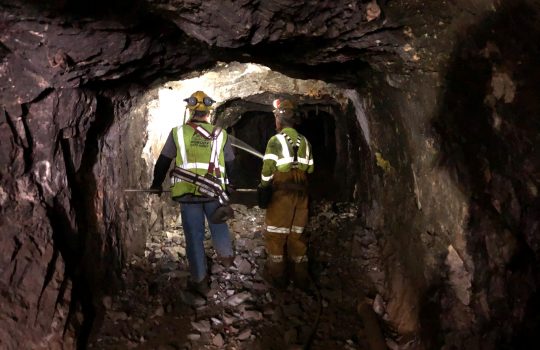Crews create a blast to take the Deep Underground Neutrino Experiment to the next stage
- Deep Underground Neutrino Experiment
- DUNE
- LBNF
- Long-Baseline Neutrino Facility
- neutrino
- Sanford Underground Research Facility
- South Dakota
Construction workers have carried out the first underground blasting for the Long-Baseline Neutrino Facility, which will provide the space, infrastructure and particle beam for the international Deep Underground Neutrino Experiment. This prep work paves the way for removing more than 800,000 tons of rock to make space for the gigantic DUNE detector a mile underground.


